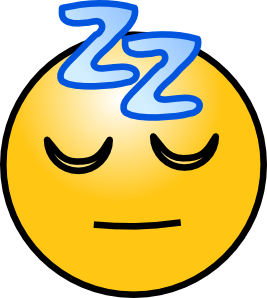 From Your Health Journal…..A wonderful article in the Huffington Post that I would like to promote called Diet Affects Sleep Patterns. Over the years, we have posted here the importance of a good night’s sleep on our body. Some things we have discussed:
From Your Health Journal…..A wonderful article in the Huffington Post that I would like to promote called Diet Affects Sleep Patterns. Over the years, we have posted here the importance of a good night’s sleep on our body. Some things we have discussed:
* Sleep has a profound effect on appetite, as it keeps the hormones related to appetite stable – so our bodies know when we are ‘full’
* Sleep helps rebuild and renew cells to strengthen our immune system
* Sleep helps improve our cognitive skills by rebuilding neurons in the cerebral cortex of the brain
* Sleep helps us look and feel better, while helping us reach optimal levels of performance.
Now, today’s article from the Huff Post discusses a study which suggests there is an association between what we eat and how we sleep. Most adults need about 8 hours of sleep a night for optimum health, but the question arises, Are there differences in the diet of those who report shorter sleep, longer sleep, or standard sleep patterns? It’s important to note that this study only showed an association and doesn’t prove that eating certain foods caused a person to have short sleep, or vice versa — that having short sleep causes a person to eat certain foods or consume certain nutrients. But still, the findings are interesting because recent research has revealed just how big of an interplay sleep and weight have — particularly in influencing risk for obesity. Please visit the Huff Post site to read the complete article. It is well written and very informative.”
From the article…..
It’s no secret: We are what we eat. And turns out, we might sleep how we eat, too.
A new study from the University of Pennsylvania’s Perelman School of Medicine shows an association between what we eat and how we sleep. The research is published in the journal Appetite.
“In general, we know that those who report between [seven to eight] hours of sleep each night are most likely to experience better overall health and well being, so we simply asked the question, ‘Are there differences in the diet of those who report shorter sleep, longer sleep, or standard sleep patterns?'” study researcher Michael A. Grandner, Ph.D., of the Center for Sleep and Circadian Neurobiology at the university, said in a statement.
Researchers examined the daily calories and foods consumed — down to a glass of water — by people who were part of the 2007-2009 National Health and Nutrition Examination Survey. They also gathered information on the amount of time the study participants slept, putting them into four categories: “very short” sleepers, who slept fewer than five hours a night; “short” sleepers, who slept five to six hours a night; “standard” sleepers, who slept seven to eight hours a night; and “long” sleepers, who slept nine or more hours a night.
And researchers did, in fact, find an association between the number of calories consumed and how long the study participants slept. Those who consumed the most were more likely to be “short” sleepers. Interestingly enough, “normal” sleepers were the next type to consume a lot of calories, followed by “very short” sleepers and then “long” sleepers, researchers found.
The researchers also identified different associations between sleep time and the types of nutrients the participants ate. For example, very short sleepers consumed less tap water, total carbohydrates and a compound found in red and orange foods, compared with the other kinds of sleepers. Meanwhile, the long sleepers consumed less of a compound found in tea and chocolate, as well as the nutrient choline (in eggs and some meats) than other kinds of sleepers, but more alcohol.
To read the complete article…..Click here
